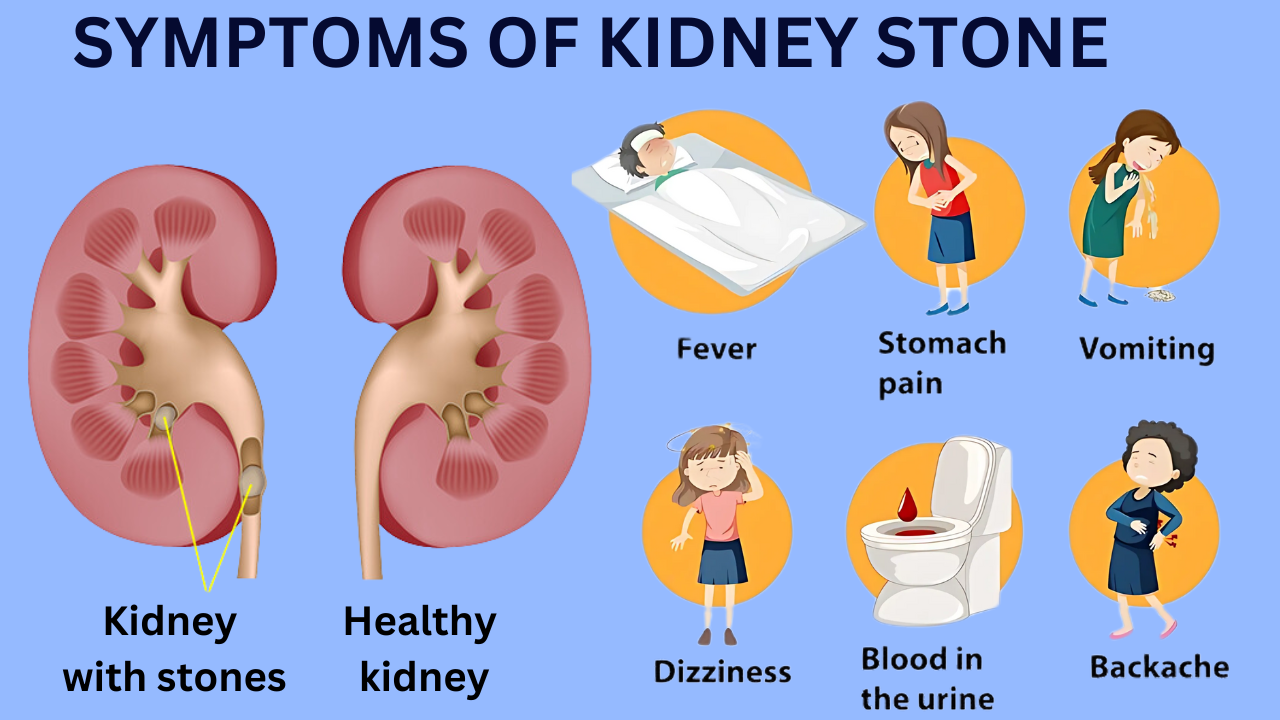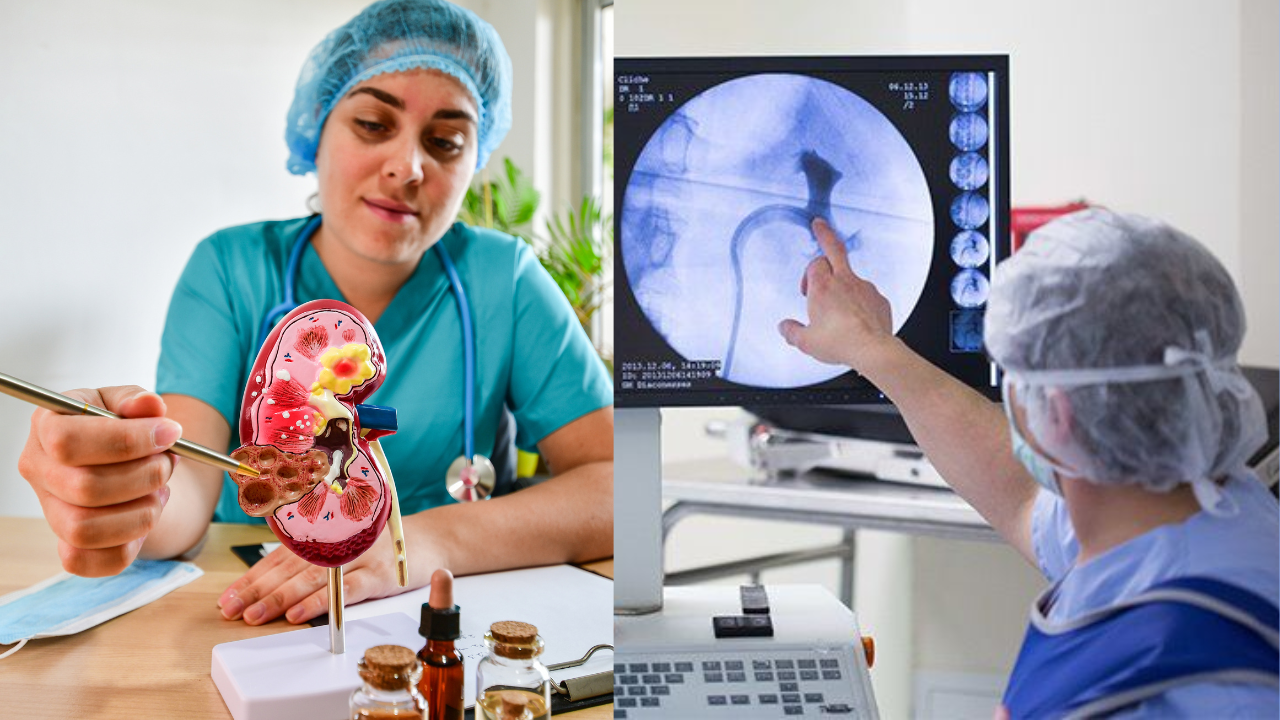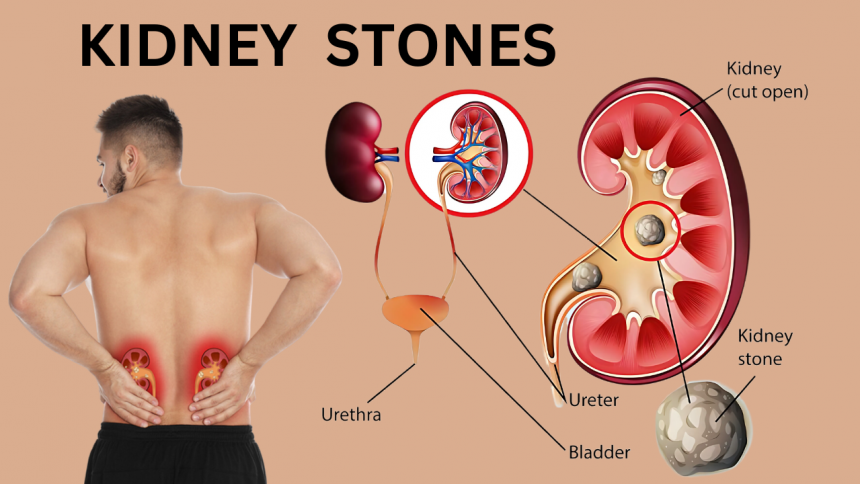Understanding Kidney Stones
Before we explore the beer-kidney stone connection, let us understand what kidney stones are. Kidney stones are solid mineral and salt deposits that form in the kidneys. They can range in size from tiny grains to larger stones, causing pain and discomfort as they travel through the urinary tract.
Myth- Does Beer Helps in Passing Kidney Stones
Yes, beer is a diuretic, and it does help in passing more urine, thus excreting out small stones. But the catch here is that stones of size more than 5 mm cannot be excreted out of the body in this way because the exit passage is just around 3mm.
If you take beer when you are in pain or are unable to pass urine, it can make your situation miserable because the beer will produce more urine you cannot expel, thus making it very painful.
Prolonged intake of beer can cause high oxalates (one of the constituents of kidney stones) and dehydration.
Beer contains alcohol that can harm your liver. Don’t you think causing liver damage is too expensive to pass a kidney stone?
Symptoms of kidney stone

Kidney stones can cause severe pain. Symptoms of kidney stones may not occur until the stone begins to move down the ureters. This severe pain is called renal colic. You may haveTrusted Source pain on one side of your back or abdomen.
In men, pain may radiate to the groin area. The pain of renal colic comes and goes but can be intense. People with renal colic tend to be restless.
Other symptoms of kidney stones can include Trusted Source:
- blood in the urine (red, pink, or brown urine)
- vomiting
- nausea
- discolored or foul-smelling urine
- chills
- fever
- frequent need to urinate
- urinating small amounts of urine
In the case of a small kidney stone, you may not have any pain or symptoms as the stone passes through your urinary tract.
How to treat kidney stones?
Treating kidney stones can vary depending on their size, type, and the severity of symptoms. Here are common approaches:

Hydration:
Drinking plenty of water helps to flush out small stones.
Pain Management:
Over-the-counter pain relievers like ibuprofen or acetaminophen can help relieve discomfort.
Medications:
Some medications can help pass stones more easily or prevent them from forming, depending on the type of stone.
Dietary Changes:
Modifying your diet to reduce oxalates (for calcium oxalate stones), sodium, and protein may help prevent future stones.
Medical Procedures:
Extracorporeal Shock Wave Lithotripsy (ESWL):
Uses shock waves to break up stones.
Ureteroscopy:
A thin tube is inserted through the urethra and bladder to remove or break up stones.
Percutaneous Nephrolithotomy:
A surgical procedure for larger stones.
Follow-up Care:
Regular check-ups and imaging tests may be necessary to monitor kidney health.
FAQs
Q.1.Can drinking beer really help pass kidney stones?
Kidney stones are small, hard mineral deposits that form in the kidneys and can cause severe pain when they pass through the urinary tract. They are formed when urine contains high levels of certain minerals and salts that can clump together and form crystals.
Q.2.What are the best dietary practices to prevent kidney stones?
Drink plenty of water:
Drinking extra water dilutes the substances in urine that lead to stones. Strive to drink enough fluids to pass 2 liters of urine a day, which is roughly eight standard 8-ounce cups. It may help to include some citrus beverages, like lemonade and orange juice. The citrate in these beverages helps block stone formation.
Calcium-rich foods
dairy products such as milk, cheese, and yogurt
leafy, green vegetables
fish with soft bones that you eat, such as canned sardines and salmon
calcium-enriched foods such as breakfast cereals, fruit juices, soy and rice drinks, and tofu.
Reduce sodium:
A high-sodium diet can trigger kidney stones because it increases the amount of calcium in your urine. So, a low-sodium diet is recommended for the stone-prone. Current guidelines suggest limiting total daily sodium intake to 2,300 mg. If sodium has contributed to kidney stones in the past, try to reduce your daily intake to 1,500 mg. This will also be good for your blood pressure and heart.
These foods are high in sodium. Look for low-sodium alternatives:
- processed meats, like deli meats (including turkey), sausages, and pepperoni
- sauces, dressings, and condiments
- instant flavored foods, like flavored rice and noodles.
Limit animal protein:
Eating too much animal protein, such as red meat, poultry, eggs, and seafood, is linked to a higher risk of developing kidney stones. If you’re prone to stones, limit your daily meat intake to a quantity that is no bigger than a pack of playing cards. This is also a heart-healthy portion.
Avoid stone-forming foods:
Beets, chocolate, spinach, rhubarb, tea, and most nuts are rich in oxalate. People who form calcium oxalate stones should limit these foods. The extra oxalate is excreted in the urine, where it can combine with urinary calcium. If you suffer from calcium oxalate stones, your doctor may advise you to avoid these foods, or to consume them in smaller amounts.
Q.3.Are there any immediate treatments for kidney stones at home?
Yes, there are some immediate home treatments that may help manage kidney stone discomfort and facilitate passing the stones:
Increase Hydration:
Drink plenty of water to help flush out the stones. Aim for at least 2-3 liters a day, unless advised otherwise by a doctor.
Pain Relief:
Over-the-counter pain relievers like ibuprofen, acetaminophen, or naproxen can help manage pain.
Warm Compress:
Applying a heating pad or warm compress to the lower back or abdomen can help relieve pain.
Lemon Juice:
Some people find that drinking lemon juice mixed with water may help, as citric acid can potentially aid in stone prevention.
Apple Cider Vinegar:
Mixing a few tablespoons of apple cider vinegar in water may help dissolve certain types of stones, though evidence is anecdotal.
Herbal Remedies:
Some herbal teas (like dandelion or nettle leaf) are thought to promote kidney health, but consult a healthcare provider before trying any herbs.
Dietary Adjustments:
If you suspect certain foods trigger your stones, temporarily avoiding them might help.


